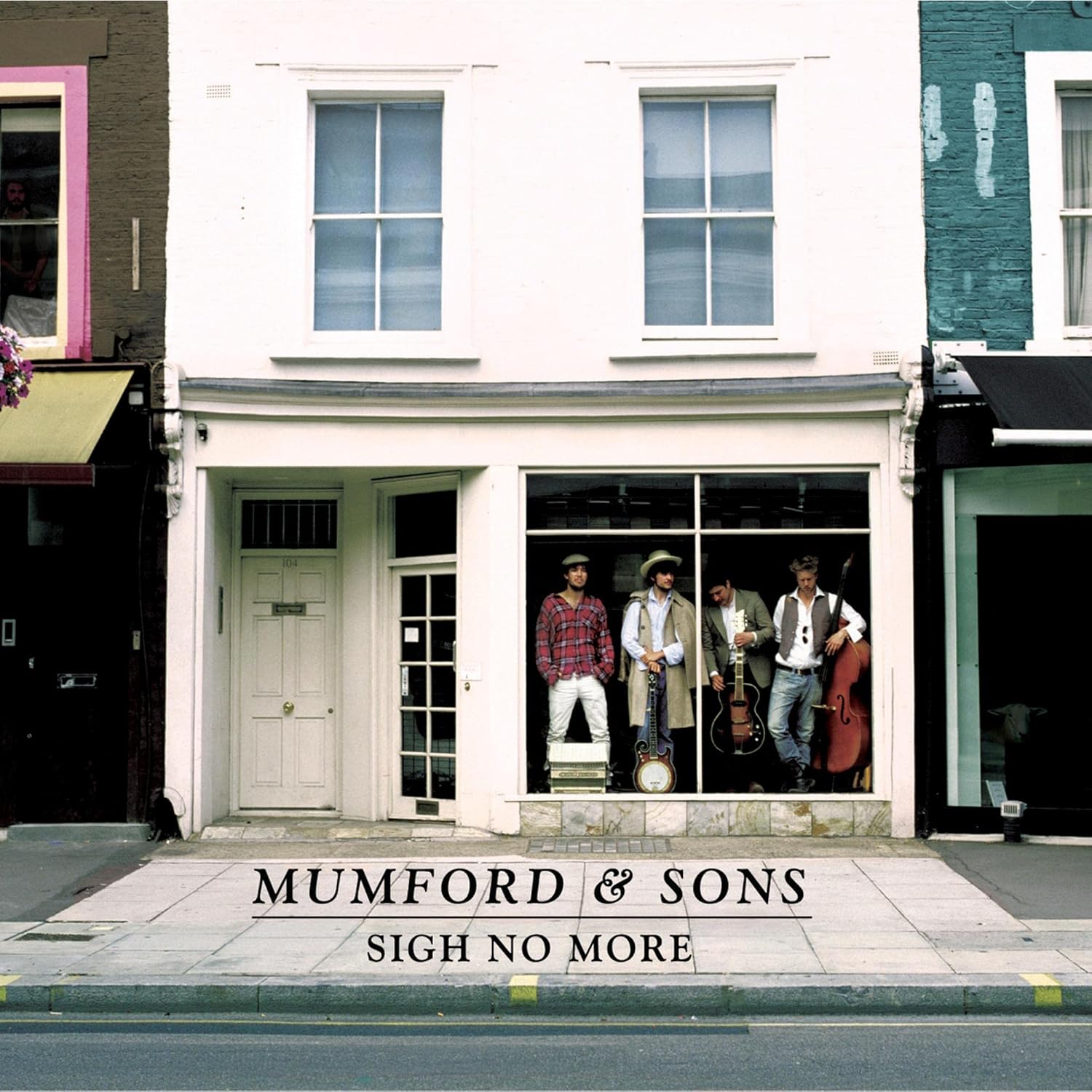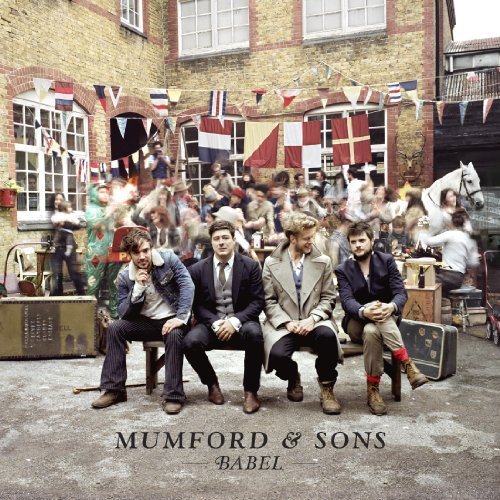An Exploration of Spiritual Motifs in Secular Music
Babel is a song by Mumford and Sons, the British folk-rock band formed in London in 2007. Comprising Marcus Mumford (lead vocals, guitar, drums), Ben Lovett (keyboard, accordion, backing vocals), Winston Marshall, now a former member, (banjo, guitar, backing vocals), and Ted Dwane (bass guitar, backing vocals), the group swiftly rose to international prominence with their debut album, Sigh No More (2009). Their music blends folk instrumentation and rock energy, marked by introspective lyrics that often delve into themes of faith, redemption, and human struggle.
Mumford & Sons gained recognition for their unique sound and lyrical depth, earning a Grammy Award for Album of the Year for their second album, Babel (2012). The band’s name is a nod to traditional English business names, which evoke a sense of tradition and craftsmanship, qualities reflected in their music.
Background on the Song “Babel”
The song “Babel” is the title track of Mumford & Sons’ second studio album. Released in September 2012, the album debuted to critical and commercial acclaim, solidifying the band’s reputation for blending rustic instrumentation with powerful emotional themes.

The song itself is a dynamic and fervent exploration of existential questions, heavily influenced by Jewish and Christian imagery. Babel, as referenced in the song, draws on the biblical story of the Tower of Babel from the Book of Genesis. This tale recounts humanity’s attempt to build a tower that would reach the heavens, only to be thwarted by God, who confounded their language and scattered them across the earth. The story symbolizes human pride, ambition, and the consequences of challenging divine authority—a thematic core that resonates throughout the song’s lyrics. However, the lyrics are opaque, with the meaning less than obvious.
Religious and Theological Themes in “Babel”
The Tower of Babel and Human Ambition
The central metaphor in the song “Babel” stems from the biblical narrative of the Tower of Babel. Mumford & Sons use this story to reflect on the frailty of human ambition and the inevitable fall that accompanies pride and overreach. The line “I know my weakness, know my voice” suggests a recognition of human imperfection and vulnerability—a stark contrast to the hubris of the Babel builders.
This theme is further emphasized by the repeated pleas for redemption and clarity throughout the song. The lyrics seem to oscillate between a confession of weakness and a yearning for spiritual guidance, echoing the biblical tale’s warning against self-reliance and the need for divine grace.
Language as Connection and Division

In Genesis, the Tower of Babel story highlights the role of language as both a unifying and divisive force. The builders of Babel were scattered when God confused their language, disrupting their ability to cooperate. In the song, Mumford & Sons explore this duality, using fragmented and evocative language to mirror the human struggle for understanding and connection.
Cause I know my weakness, know my voice,
And I’ll believe in grace and choice
And I know perhaps my heart is farce,
But I’ll be born without a mask
The chorus, with its strident repetitions and layered instrumentation, creates a sense of yearning for restoration—a desire to overcome the divisions that isolate individuals from one another and the divine. This linguistic fragmentation is also echoed in the band’s musical style, where harmonies and crescendos build a sense of collective unity amidst personal introspection.
Faith and Redemption
One of Mumford & Sons’ hallmark lyrical themes is the quest for redemption, and “Babel” is no exception. The song repeatedly invokes imagery of spiritual struggle.
Like the city that nurtured my greed and my pride,
I stretch my arms into the sky
I cry, “Babel! Babel! Look at me now!”
Then the walls of my town, they come crumbling down.
Like the biblical tower of Babel, the town's walls are also coming tumbling down. There is a sense of alienation and spiritual disorientation—an acknowledgment of the human longing for purpose and reconciliation.
The protagonist understands his weakness saying:
I should’ve known I was weaker from the start,
You’ll build your walls and I will play my bloody part
To tear, tear them down,
It seems we have a reversal here and unlike in the Biblical story, in this case, it is humans who are doing the tearing down, but of course, isn’t that what we do? We tear down what God has given us.
And so the protagonist calls for Divine help:
So come down from your mountain and stand where we’ve been,
You know our breath is weak and our body thin
The music’s urgency and fervor further underscore the call for redemption. The thundering pace and raw instrumentation mirror the intensity of the singer’s spiritual quest. Mumford & Sons’ ability to balance personal vulnerability with universal longing makes “Babel” a deeply resonant piece for listeners navigating their journeys of faith and doubt.
The Role of Community in Spiritual Healing
While the Tower of Babel represents fragmentation and isolation, the song “Babel” subtly offers a counterpoint: the healing power of community. Mumford & Sons often emphasize collective experiences, be it through their harmonized vocals or tightly woven musical arrangements.
And I’ll believe in grace and choice

We are given grace, and within that framework, we can make choices, supposedly good ones. In the context of “Babel,” it is not just the lyrics, but the collective musical sounds that serve as a metaphor for the communal nature of spiritual growth. The band’s interplay of instruments and voices suggests that healing and understanding are not solitary endeavors but are found in shared experiences and relationships. This is a recurring theme in their music, where individual struggles are often intertwined with broader human connections.
Conclusion
“Babel” by Mumford & Sons is more than a song; it is a profound exploration of human ambition, frailty, and redemption set against the backdrop of ancient biblical narratives. The band’s ability to weave religious imagery with contemporary emotional themes speaks to their unique artistry, resonating deeply with listeners who find solace, challenge, and inspiration in spiritual reflection.
Through their music, Mumford & Sons invite audiences to confront their towers—those edifices built on pride and fear—and seek connection, clarity, and redemption. Just as the Babel story invites humanity to reconsider its relationship with the divine, the song “Babel” encourages listeners to navigate their struggles with humility and hope, reminding us that amidst the chaos, there is always a path toward restoration.
You can check out the song's full lyrics at AZlyrics and see if other parts of the lyrics intrigue you. Please use the comments section below to discuss my thoughts or what you discover in the lyrics. Keep the rock theology discussion going!
If you are not familiar with Mumford & Sons' music, oh my gosh, get so. I would suggest that you start with their first album "Sigh No More" before moving onto "Babel."
Previous Rock Theology Posts:




